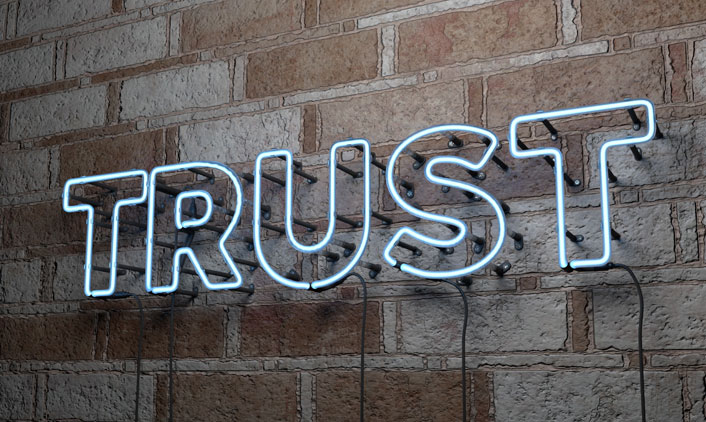When you’re building a young company, it’s easy to get caught up in just creating the very best product or service that you can.
In an ideal world, that’s how you would win in your segment. The cream would rise to the top and the strength of your product alone would generate leads, make sales and drive explosive growth.
But, as we’ve seen in countless markets, from VHS winning out over Betamax back in the ‘80s to ‘Beats by Dre’ headphones becoming a $3bn company, despite consistently poor reviews for sound quality, it’s not necessarily the best product that wins, it’s who can make the deepest connection with customers that emerges victorious.
As technology develops and barriers to entry continue to fall, competition is only going to increase. It will be the organisations who can make their offering appear most relevant to customers’ needs that will continue to dominate. The way they’ll do this is through their brands.
What is a brand?

Everyone knows what a brand is, right? It’s a logo and some colours. Maybe a fancy typeface too. Not something you need to really worry about because your product is so awesome?
Well, no – your brand is much, much more than just your logo.
I like Seth Godin’s definition: “A brand is the set of expectations, memories, stories and relationships that, taken together, account for a consumer’s decision to choose one product or service over another.”
In other words, it’s the space that a company sits in someone’s head. It’s what they think of when they hear the name or see a logo. It’s affected by past experiences with the company, the design of the website, what a product feels like to touch and a million other things.
Any contact with an organisation affects how customers view its brand, either changing their opinion or reinforcing it.
Brand is why people choose an Audi A3 over a VW Golf and pay a premium to do so.
Is it a better car? Objectively, no: it’s the same under the skin.

But because of the Audi brand and the emotions that it evokes, people are prepared to choose it, even if it leaves a bigger dent in their wallet.
This is what a brand is and having a clearly defined brand allows you to shape how your organisation is seen and the space that it occupies in peoples’ heads. This is important not just for customers and employees, but for investors too, if you’re seeking funding.
For customers:
Customers care about their own desires and outcomes far, far more than the finer details of your service. What they want to know is how your product is going to help them achieve their outcomes and they rarely notice details and even more rarely value them as much as their creators think they will or should.
Until the latest generation of mobile phones, manufacturers were in an arms race to include ever more features and apps, just because they could. Heart rate sensors, pedometers, their own music players – if they could build it they would, whether the customer wanted it or not. Only recently have mobile manufacturers realised that what customers really care about is the experience of using the device and how it allows them to do what they really need it to do.
To truly connect with customers, you need to make an emotional connection with their needs. Even for a B2B offering, the more emotionally engaging your value proposition is, the more people will care. And if you can relate it to insights around what your customers care about most, then you are well on your way to building a compelling brand that will cultivate more meaningful and sustained customer relationships.
For your team:
Knowing the overarching purpose of an organisation (beyond just making money) is key to driving and defining the culture of a growing organisation, giving your team a reason to turn up on a Monday morning, other than the paycheque.
If your CEO and your back-end programmer were both asked why your organisation exists – would they both be able to concisely articulate it? And would they give the same answer? If not then it may be worth taking the time out to define what the organisation really stands for, to ensure that everyone is pulling in the same direction.
After all, your team represents your brand and if they don’t believe in it, then how will your customers?
For Investors:
If you’re looking for funding to accelerate your company’s growth, then being able to articulate in simple terms why your startup matters to your target market is essential to secure funding. VC funding is in short supply in Australia so to be successful you need to have a clear and compelling brand story investors will find worthy of investing in.
Articulating your brand story through professional visual design and confident copy will also provide comfort to investors that your organisation knows where it is going and is worthy of investment.
For you:
Most importantly, defining your company’s brand will help will guide its growth. It will help with your product development; your company culture; your marketing and sales conversations and, most importantly, your organisation’s behaviour.
After all, if you don’t have a firm idea of what it is that makes your organisation special and unique, then there’s no way you can expect anyone else to.
Compared to the other costs associated starting and growing a company, investing in a compelling brand strategy that truly engages your customers, employees and may well be the most efficient way to build scale in your business and increase its equity.
Next, we’ll look at how to define your brand and what this can mean for your company’s growth.









